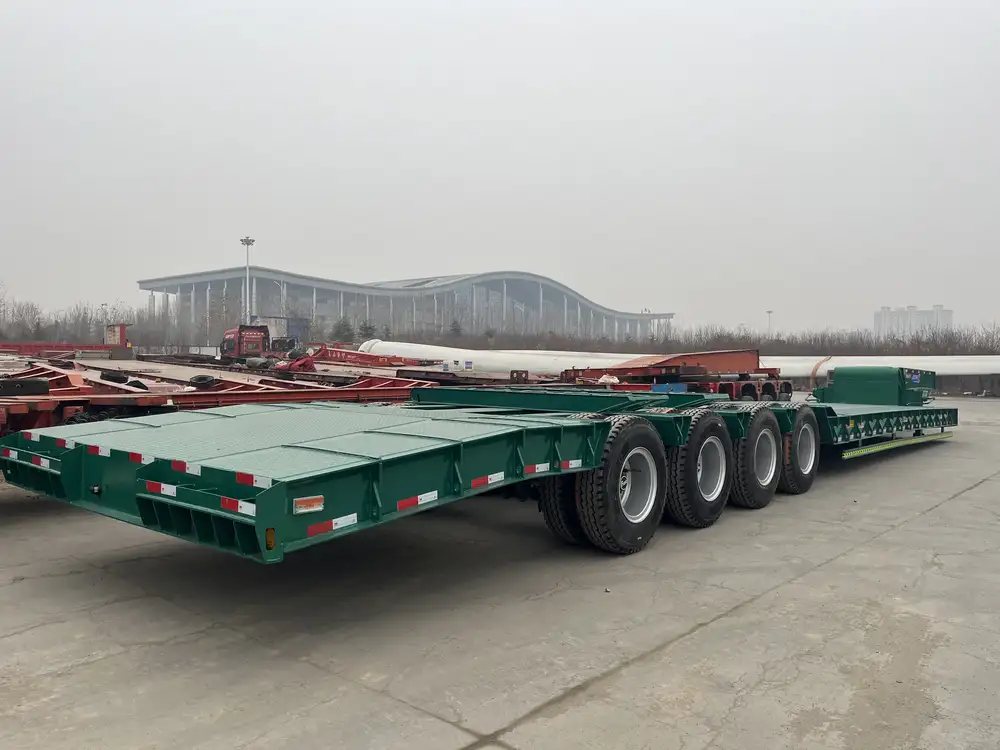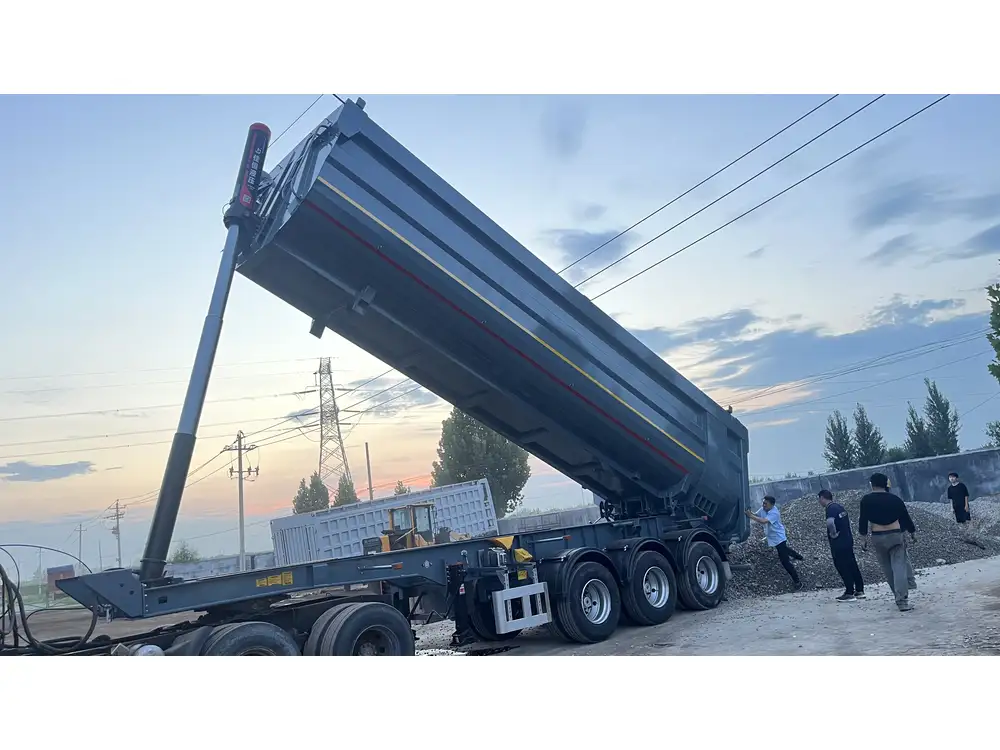Understanding Semi-Trailer Washouts
When it comes to maintaining semi-trailers, the issue of cleanliness often surfaces. A semi-trailer washout is essential for ensuring the hygiene of the transport vehicle, especially for those handling food products or hazardous materials. Neglecting regular washouts can lead to contamination, unpleasant odors, and increased wear and tear on the vehicle, ultimately affecting its resale value. In this guide, we aim to explore the costs associated with semi-trailer washouts, variations by region, factors influencing pricing, and the importance of regular cleaning.
What is a Semi-Trailer Washout?
A semi-trailer washout is the process of thoroughly cleaning the interior of a semi-trailer, removing all residues from previous cargo. Depending on what has been transported—be it food, construction materials, or liquids—the washout process will vary significantly in complexity and cost. This cleaning procedure ensures compliance with health standards and extends the life of the trailer.

Factors Influencing the Cost of Semi-Trailer Washouts
Understanding the cost of a semi-trailer washout involves analyzing several critical factors:
| Factor | Description |
|---|---|
| Location | Costs can vary significantly based on geographic location. Urban areas usually have higher fees. |
| Type of Trailer | The size and type of the trailer (e.g., reefer, flatbed, or dry van) will influence the price. |
| Severity of Residue | The more challenging the cleaning process, the higher the cost. Hazmat residues incur additional charges. |
| Service Provider | Different washout facilities offer varying rates based on reputation and technology used. |
| Additional Services | Some facilities may offer additional services such as inspection or maintenance, affecting total cost. |
| Seasonal Demand | Rates can fluctuate based on the time of year; peak seasons may see higher charges. |
Average Price Range for Semi-Trailer Washouts
The costs associated with semi-trailer washouts typically range between $50 and $150. However, this can fluctuate based on the factors outlined above. Below is a detailed breakdown based on different scenarios:
| Scenario | Estimated Cost | Notes |
|---|---|---|
| Basic Dry Van Washout | $50 – $75 | Simple residue cleaning |
| Reefer Trailer Washout | $75 – $120 | Includes temperature control areas |
| Hazmat Vehicle Washout | $100 – $200 | Specialized cleaning required |
| Regular Maintenance Washouts | $75 – $150 per visit | Recommendations every 2-4 weeks |
The Importance of Regular Semi-Trailer Washouts
1. Compliance with Health Regulations:
In many industries, particularly food transportation, adhering to health regulations is mandatory. A timely washout not only meets these legal obligations but also safeguards public health.
2. Improving Longevity of the Trailer:
Regular washouts can help maintain the structural integrity of a semi-trailer. By eliminating corrosive residues, the cost of repairs and maintenance can be significantly reduced.
3. Enhancing Fuel Efficiency:
A clean trailer can improve aerodynamic performance, thereby potentially enhancing fuel efficiency. This translates to significant cost savings, especially for long-haul drivers.
4. Preventing Pest Infestations:
Residue left in trailers can attract pests, which may lead to infestations. Regular washouts mitigate this risk, protecting cargo and upholding standards.
5. Resale Value:
Trailers that have been well-maintained and regularly cleaned can command a higher resale value, benefiting owners when it’s time for an upgrade.

The Washout Process: What to Expect
Engaging a professional for a semi-trailer washout involves several steps:
- Initial Assessment: The service provider evaluates the trailer, determining the level of cleaning required based on previous cargo.
- Preparation: This includes securing the trailer to prevent movement and ensuring all necessary tools and cleaning agents are ready.
- Cleaning: Using a combination of pressure washing, steam cleaning, and chemical agents appropriate for the residues present, the washout commences.
- Drying and Inspection: A thorough drying process is crucial, followed by an inspection to ensure no residues remain.
- Documentation: Many washout facilities provide documentation that verifies the cleaning process, which can be vital for record-keeping and compliance checks.
Choosing the Right Washout Facility
Selecting a washout facility is crucial for ensuring efficient and safe cleaning. Consider the following criteria:
| Criterion | Details |
|---|---|
| Reputation and Reviews | Research customer reviews and ratings to gauge quality and reliability. |
| Facility Standards | Ensure the facility adheres to industry cleanliness and safety protocols. |
| Service Range | Some facilities may offer additional services like maintenance or inspections. |
| Location and Accessibility | Choose a facility that is convenient for your routes to minimize downtime. |
| Cost Transparency | Look for facilities that provide clear pricing structures with no hidden fees. |
Tips for Maintaining Cleanliness Between Washouts
While regular washouts are essential, here are some tips for maintaining cleanliness between these sessions:
- Conduct Regular Inspections: Check the trailer after each haul to identify any residues.
- Use Protective Liners: If transporting bulk materials, consider using plastic liners, which can be easily removed and cleaned.
- Limit Material Spill: Train employees on best loading practices to minimize the chance of spills and residues.
- Implement a Cleaning Schedule: Regular, proactive cleaning reduces the burden at scheduled washouts.

User FAQs About Semi-Trailer Washouts
Q1: How often should I have my semi-trailer washed out?
A1: It’s generally recommended to have a washout after every load, especially if you’re transporting food or hazardous materials. Regular maintenance every 2-4 weeks can prevent the buildup of residues.
Q2: Can I wash out my trailer myself?
A2: While possible, it’s often not advisable due to safety and compliance issues. Professional washouts ensure thorough cleaning and documentation.
Q3: What should I do if my trailer has a significant buildup of residue?
A3: Seek a specialized washout facility that handles intense cleanings, especially for trailers that have transported hazardous materials.
Conclusion: Ensure Your Semi-Trailer’s Integrity and Compliance
Regular semi-trailer washouts are paramount for maintaining the trailer’s integrity, ensuring compliance with health regulations, and prolonging the vehicle’s lifecycle. By understanding the costs involved and the importance of professional cleaning, owners can make informed decisions that benefit their operations. Prioritize regular maintenance and choose reputable washout facilities to protect both your cargo and your investment. This diligence not only ensures operational efficiency but also contributes positively to the broader logistics ecosystem.



